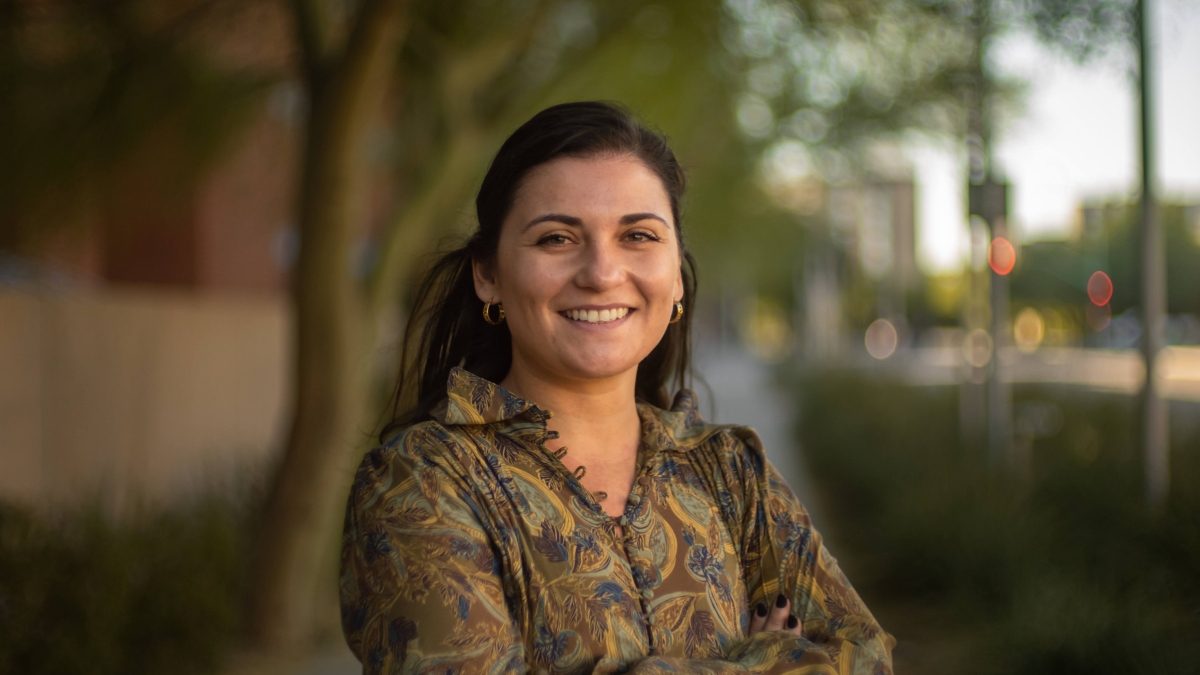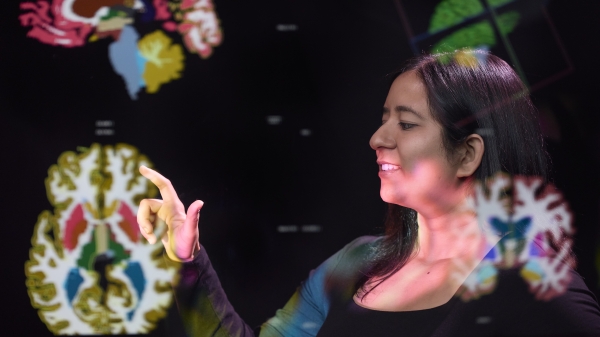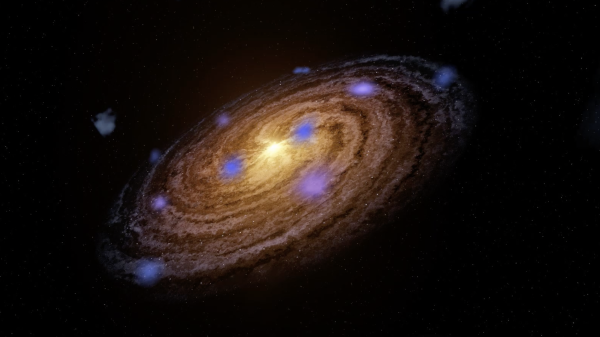What is your dog really feeling?

Holly Molinaro is a psychology doctoral student in the Behavioral Neuroscience and Comparative Psychology training program in ASU's Department of Psychology.
You may think you know what your dog is feeling, but do you really? Research in the Arizona State University Department of Psychology suggests that we may not be as successful in guessing our dog’s emotions as we think we are.
Holly Molinaro is a psychology doctoral student in the Behavioral Neuroscience and Comparative Psychology training program in the Department of Psychology. She was recently announced as a winner of the ISSR graduate poster competition along with fellow psychology student Nayen Lee.
She is part of the Canine Science Collaboratory under the mentorship of Clive Wynne, dog expert and professor of psychology.
Related: Taking a 'test drive' with shelter dogs
Molinaro’s undergraduate education came from Stetson University in Florida, where she studied pygmy rattlesnake behavior, and she received a master's at Sonoma State, where she studied the social behavior of baboons. At ASU, she is expanding her research to focus on animal emotion and cognition, specifically on positive emotions.
“I was really interested in the positive emotion aspect of animals because that's really understudied,” said Molinaro. “Animal behavior is so broad, and most animal emotion research is focused on the negative emotions, like ‘how can we stop animals from feeling these negative emotions?’ But we don't have a lot of research on how can we increase their positive emotions, let alone how can we even understand if they're feeling good or bad.”
The research done at the Canine Science Collaboratory currently centers around four domains: dog welfare at the animal shelter; behavioral problems at home; human-dog interaction; and dog’s wild relatives and what they can tell us about what makes dogs unique. Molinaro hopes that her positive emotion work helps to improve the welfare of rescue dogs and for people to give animals a chance in a new environment.
“What I’ve recently done was look at human perception of dog emotion and how the context plays a role in it and how the situation or context influences how we think the dog's feeling,” said Molinaro.
Molinaro edited video clips where dogs were either in an agitated state or a positive state and altered the context surrounding the moments. The dogs were either presented with a typically negative stimulus, such as a cat or a vacuum cleaner, or a positive stimulus, such as a treat.
“For one study, I just took away the context,” said Molinaro. “You just show a video of the dog and ask people how good or bad you think the dog is feeling, how calm or agitated you think the dog is feeling. And then I show them the same videos with the context back in, and we found that it definitely changes how people view the dog's emotions.”
She found this interesting and continued into another study of swapping the context leading up to the dog behavior.
“I took it a step further and I mixed up the video context. The dog might look like it's getting a treat, but it was really being scared by the vacuum. What we found with that is no matter what the dog's doing, people rate the dogs really good or bad based on the context. If the dog is being shown receiving a treat, participants always felt that the dog is feeling good even if that video is actually a dog being scared or reprimanded,” said Molinaro.
Molinaro’s advice for the general public is to understand that we may be reading the situation and not actually the animal’s behavior.
“I think broadly, when we do animal emotion research, we need to take a step back and think about all these biases that we might not even know that we're bringing to the situation. In terms of research, when we're asking these questions, we can't just say, 'Do you think this dog's happy or sad?' There's more going on there," she said.
More Science and technology

New NIH-funded program will train ASU students for the future of AI-powered medicine
The medical sector is increasingly exploring the use of artificial intelligence, or AI, to make health care more affordable and…

Cosmic clues: Metal-poor regions unveil potential method for galaxy growth
For decades, astronomers have analyzed data from space and ground telescopes to learn more about galaxies in the universe.…

Indigenous geneticists build unprecedented research community at ASU
When Krystal Tsosie (Diné) was an undergraduate at Arizona State University, there were no Indigenous faculty she could look to…